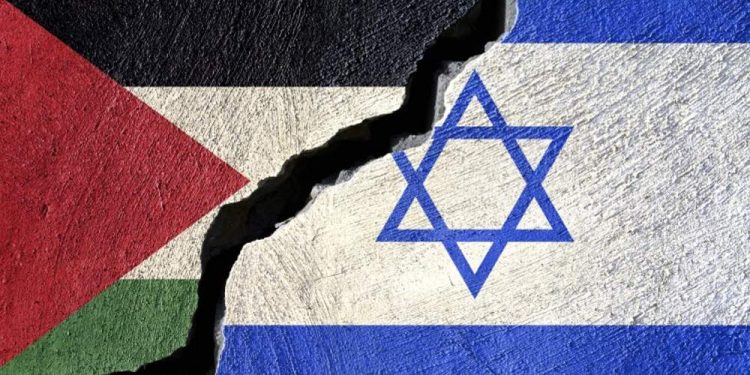(WND)—What’s all the controversy in the Middle East about? I know that much of it, at the moment, is being generated by some loud voices and shrill protesters in Chicago – and Gaza.
If you believe what you read in most news sources, Palestinians want a homeland and Muslims want control over sites they consider holy. Simple, right?
Well, as an Arab-American journalist who has spent some time in the Middle East dodging more than my share of rocks and mortar shells, I’ve got to tell you that these are just phony excuses for the rioting, trouble-making and land-grabbing – not to mention the horrors of Oct. 7.
Isn’t it interesting that prior to the 1967 Arab-Israeli war, there was no serious movement for a Palestinian homeland?
“Well, Farah,” you might say, “that was before the Israelis seized the West Bank and Old Jerusalem.”
That’s true. In the Six-Day War, Israel captured Judea, Samaria and East Jerusalem. But they didn’t capture these territories from Yasser Arafat. They captured them from Jordan’s King Hussein. I can’t help but wonder why all these Palestinians suddenly discovered their national identity after Israel won the war.
The truth is that Palestine is no more real than Never-Never Land. The first time the name was used was in 70 A.D. when the Romans committed genocide against the Jews, smashed the Temple and declared the land of Israel would be no more. From then on, the Romans promised, it would be known as Palestine. The name was derived from the Philistines, a people conquered by the Jews centuries earlier. It was a way for the Romans to add insult to injury. They also tried to change the name of Jerusalem to Aelia Capitolina, but that had even less staying power.
Palestine has never existed – before or since – as an autonomous entity. It was ruled alternately by Rome, by Islamic and Christian crusaders, by the Ottoman Empire and, briefly, by the British after World War I. The British agreed to restore at least part of the land to the Jewish people as their homeland.
There is no language known as Palestinian. There is no distinct Palestinian culture. There has never been a land known as Palestine governed by Palestinians. Palestinians are Arabs, indistinguishable from Jordanians (another recent invention), Syrians, Lebanese, Iraqis, etc. Keep in mind that the Arabs control 99.9% of the Middle East lands. Israel represents one-tenth of 1% of the landmass.
But that’s too much for the Arabs. They want it all. And that is ultimately what the fighting in Israel is about today. Greed. Pride. Envy. Covetousness. No matter how many land concessions the Israelis make, it will never be enough.
What about historic and spiritually significant Islamic holy sites? There are none in Jerusalem.
Shocked? You should be. I don’t expect you will ever hear this brutal truth from anyone else in the international media. It’s just not politically correct.
I know what you’re going to say: “Farah, the Al Aqsa Mosque and the Dome of the Rock in Jerusalem represent Islam’s third-most holy site.”
Not true. In fact, the Quran says nothing about Jerusalem. It mentions Mecca hundreds of times. It mentions Medina countless times. It never mentions Jerusalem. With good reason. There is no historical evidence to suggest Muhammad ever visited Jerusalem.
So how did Jerusalem become the third holiest site of Islam? Muslims today cite a vague passage in the Quran, the 17th Sura, entitled “The Night Journey.” It relates that in a dream or a vision Muhammad was carried by night “from the sacred temple to the temple that is most remote, whose precinct we have blessed, that we might show him our signs. …” In the seventh century, some Muslims identified the two temples mentioned in this verse as being in Mecca and Jerusalem. And that’s as close as Islam’s connection with Jerusalem gets – myth, fantasy, wishful thinking. Meanwhile, Jews can trace their roots in Jerusalem back to the days of Abraham.
So what’s the solution to the Middle East mayhem? Well, frankly, I don’t think there is a man-made solution. But, if there is one, it needs to begin with truth. Pretending will only lead to more chaos. Treating a 3,500-year-old birthright backed by overwhelming historical and archaeological evidence equally with illegitimate claims, wishes and wants gives diplomacy and peacekeeping a bad name.
Content created by the WND News Center is available for re-publication without charge to any eligible news publisher that can provide a large audience. For licensing opportunities of our original content, please contact licensing@wndnewscenter.org.




